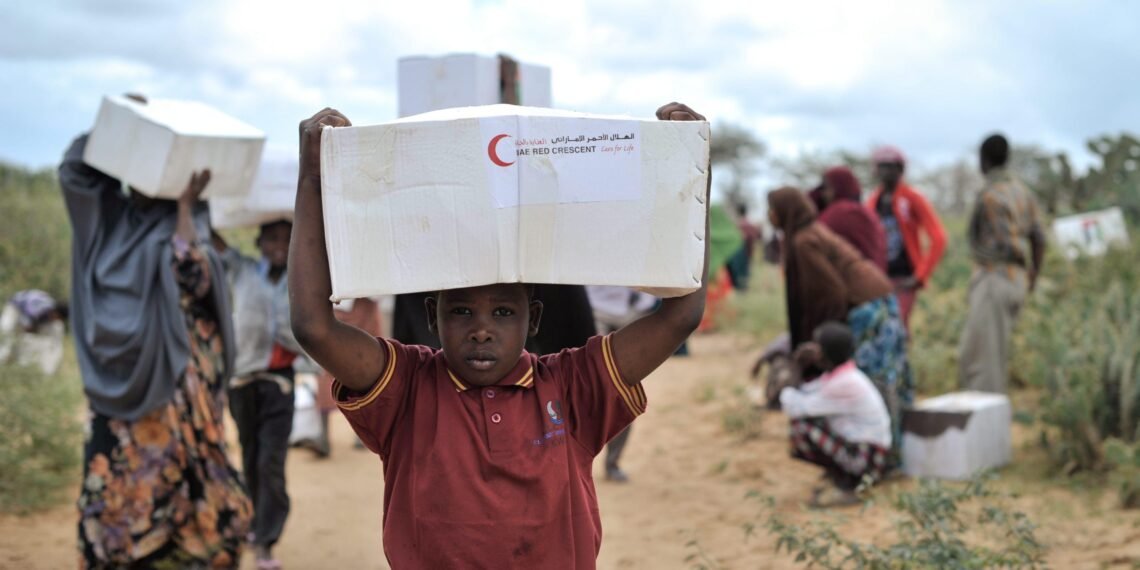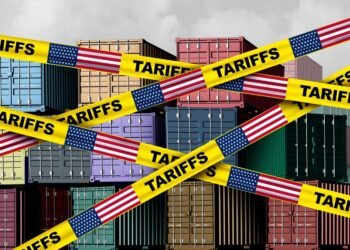According to the United Nation Famine Prevention and Response Coordinator, Reena Ghelina, the dangers of famine in war-torn countries, are gradually exceeding its limits and reaching an unwanted height.
Ghelani said this during her address to the UN Security Council on the dangers of famine, and war-related global food insecurity. Hunger and violence “feed off of each other,” she said.
“Armed conflict destroys food systems, shatters livelihoods and drives people from their homes, leaving many extremely vulnerable and hungry. Sometimes these impacts are by-products of war, but all too often they are inflicted deliberately and unlawfully with hunger utilized as a tactic of war.”
Reena Ghelani, United Nation Famine Prevention and Response Coordinator.
Ghelani averred that, the used of starvation as a weapon in war, by warring factions, and the dangers of food shortages draw people into hunger and eventually lead them to death. She continued that, starvation must be considered as an extreme risk for global peace and security.

The UN official revealed that, statistics from 2022 showed that, the number of people who experienced severe hunger, reached over 250 million, which happens to be the highest rate in recent years.
The impact of armed warfare or extreme high levels of aggression in over seven countries, contributed to over 376,000 individuals experiencing a famine-like conditions. Reena Ghelani further explained that, extra 35 million people are on the verge of starvation.
Ms. Ghelani continued that, one factor that has fueled instability, is the lack of food. She referenced to a study that demonstrated how people are drawn to conflict rather than tranquility, when there are inequality, destitution, and food insecurity.
“It is the straw that breaks the camel’s back, leading to conflict,” she said.

Moreover, Ms. Ghelani pointed out that, conflict also have significant impact on those who have been assisting others to prevent starvation.
Every year, conflict-related situations result in the death, injury, and abduction of hundreds of aid workers. Additionally, aid groups, facilities, and logistics have frequently been confiscated, plundered, or channeled to military bases for military use.
“The difficulties the United Nations, NGOs, and its partners are facing in Sudan is a stark example,’ Ms. Ghelani disclosed. She expressed her sympathies to the families of the 11 aid workers killed in Sudan in recent weeks.
Another dimensions that have made the current situations worse than the previous, are climate change and the economic health of the affected countries.
Ghelani added that, the gradual depletion of natural resources have contributed to the upsurge in migration, and eventually starvation and warfare.
Simultaneously, insecurity in conflict-affected countries stymies climate adaption efforts. “This leaves already vulnerable communities even poorer, hungrier and less resilient,” she said.
Ms. Ghelani described her personal encounter in which she traveled to towns that were on the verge of being hungry.
“I have sat with mothers in too many nutrition wards, in too many displaced camps. And as their small children fought for their lives, they were too weak to cry, even make a sound that eerie silence is deafening. It never leaves you,” she said.
Reena Ghelani, United Nation Famine Prevention and Response Coordinator.

Nevertheless, Ms. Ghelani emphasized that women and girls must be the focus of all of our efforts.
“Crises and hunger affect them disproportionately, and they also hold the key to lasting solutions. Research shows that involving local women in peacebuilding increases the probability that violence will end by 24 per cent.”
Reena Ghelani, United Nation Famine Prevention and Response Coordinator.
Furthermore Reena Ghelani stressed that, crucial actions must be implemented to solve the issues. the UN official further encouraged that, progress is still achievable in spite of the recurring obstacles.
She emphasized that, one of the major solutions to war, is ensuring that warring parties adhere to international humanitarian laws, especially safeguarding food and water systems and allowing uninterrupted humanitarian access.
Additionally, she called for increased use of early warning systems, good monitoring, sufficient funds for relief operations, and being brave and innovative in coming up with solutions to lessen the effects of war on those who are most at risk.
READ ALSO: UK Outsourced Contractors Failing To Meet Standards, Research Reveals























